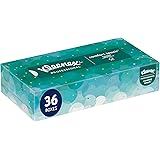Canada’s fentanyl czar lays out his goal: Stop the drug from crossing U.S. northern border
Canada’s newly appointed fentanyl czar says his goal is to bring the already low percentage of the deadly opioid smuggled south into the United States down to zero.
“Getting the number to zero is in fact our goal and should be our goal,” Kevin Brosseau told reporters Wednesday, his first full day in the position.
“If it is one pound or 10 pounds, we all know the possibility of deaths that could represent. This is a public safety and security crisis. We should be focused on eliminating the scourge of fentanyl in this country and the United States.”
The former senior Mountie took questions after touring a Canada Border Services Agency port of entry facility near Lansdowne, Ont., not far from Kingston. Officials showed Brosseau and Public Safety Minister David McGuinty how agents search vehicles for illegal goods, including drugs like fentanyl and firearms.
Former Mountie Kevin Brosseau spoke with reporters for the first time on Wednesday as Canada’s newly appointed fentanyl czar. Brosseau said one of his goals is to get the amount of fentanyl entering the United States from Canada to zero.
Fentanyl is a powerful synthetic opioid sometimes prescribed for pain, but it is also made illegally and has killed thousands on both sides of the border. U.S. President Donald Trump has repeatedly raised the drug coming into the U.S. as justification for sweeping tariffs, which are on hold for now.
Figures from U.S. Customs and Border Protection (CBP) show the agency seized 19.5 kilograms of fentanyl at the northern border last year, compared to 9,570 kilograms at the southwestern one.
While it’s a small percentage, it hasn’t stopped Trump from demanding Canada take a tougher line against a drug that the U.S. Centers for Disease Control and Prevention (CDC) said killed more than 74,000 Americans in 2023.
The exact parameters of Brosseau’s job are somewhat vague but the government said as the point-person on the file, he’ll be in a co-ordinating position and is being asked to work closely with U.S. counterparts, law enforcement agencies, public health and prosecution services to dismantle the fentanyl trade.
“Of course, it’s also a demand issue. So the supply, in terms of what we’re doing, will be our first our first target,” McGuinty said.
The minister said Brosseau and his team will give the government “the next practical steps that we can take to continue to make progress.”
Ottawa
Brosseau, who was named to the role Tuesday afternoon, said he hopes to meet with high-ranking officials in the U.S. administration soon, including Tom Homan, Trump’s border czar.
“I’m hoping to give an intensity to the work carried out by thousands of men and women in this country and the United States trying to deal with the real public safety and national security crisis that is fentanyl,” said Brosseau Wednesday, standing in front of one of the RCMP’s newly leased Black Hawk helicopters.
He said he’ll work to ensure collaboration and communication between officials “on both sides of the border in communities across the country.”
Brosseau served in the RCMP for over 20 years, including as deputy commissioner and as commanding officer in Manitoba from 2012-16. He also recently served as deputy national security and intelligence adviser to Prime Minister Justin Trudeau.
His position was pitched to Trump on a high-stakes phone call earlier this month, just hours before he was set to impose 25 per cent tariffs on most Canadian goods. Trump issued an executive order delaying the broad tariffs until March 4.
According to a statement after that call, Trudeau told Trump that Canada is pressing ahead with a previously announced $1.3-billion border security plan that includes reinforcing the border with new choppers, technology and personnel and stepping up its co-ordination with American officials to crack down on illegal drugs and migrants.
“We’re going to proceed as we always have, with good faith and goodwill. There’s progress to be made,” said McGuinty.
He suggested the government will soon have more to say about listing Mexican cartels as terrorists — another point in the deal with Trump.
The president has since threatened to impose 25 per cent tariffs on all steel and aluminum imports, including from its biggest supplier, Canada, effective March 12.
View original article here Source










